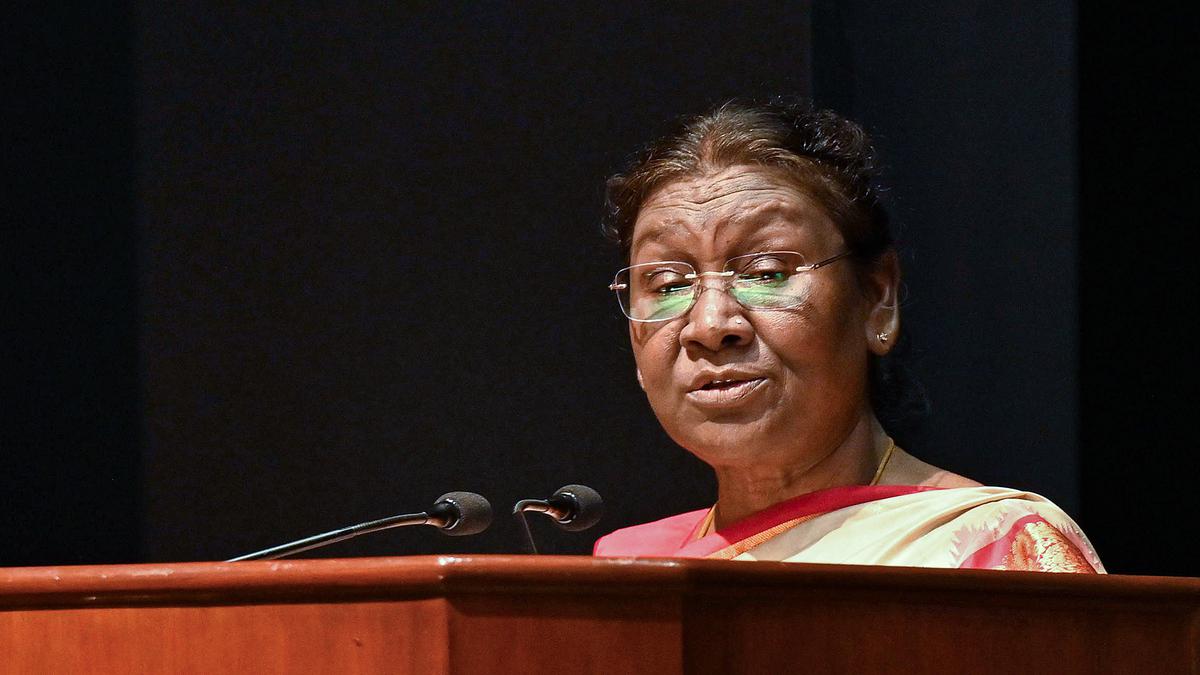
India needs efficient multi-modal transport system: President Murmu
The Hindu
Addressing a group of 213 probationers from different services of the Indian Railways, the President asked the officers to work collectively and make the railways a future-ready organisation
President Droupadi Murmu on Friday said the country needs an efficient multi-modal transport system for which rail, road, air and water transportation should be dealt with in a holistic approach rather than in isolation.
Addressing a group of 213 probationers (2019, 2020 and 2021 batches) from different services of the Indian Railways at the Rashtrapati Bhavan Cultural Centre here, she said unlike any commercial organisation the railways is a social lifeline of the country.
Besides, it carries the dreams of ordinary people and at the same time, its nationwide connectivity showcases nation's diversity, the President said.
“The country needs an efficient multi-modal transport system for which rail, road, air and water transportation should be dealt with a holistic approach and not in isolation.”
"I urge you all to work in coordination with the officers of other departments also for achieving the goal of an atmanirbhar and developed nation," Ms. Murmu told the probationers.
Asserting that the technological changes are taking place at an unprecedented speed and scale, she asked the officers to work collectively and make the railways a future-ready organisation.
Ms. Murmu said trains and their journeys have always been an important part of people's lives.













